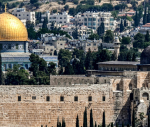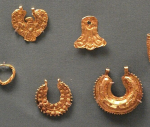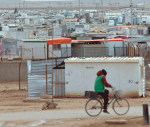You are here
The unfriendly Jordan's 'friends' club
Jul 04,2018 - Last updated at Jul 04,2018
There are no permanent friends or enemies in politics or international relations, they say, but there are permanent interests. The interests of a given nation are the main factor that decide the shape and scope of ties and the nature of interaction with others.
But never in the history of Jordan has the country seen its interests come to a head-to-head collision with so many “friends”, at the same time and on more than one front, leaving the country gasping for air and switched to survival mode.
In south Syria, there is a near and direct danger to Jordan's national security after Russia and the US virtually discarded the deal to establish and maintain a de-escalation zone and keep the border area as quiet and trouble-free as possible. For the three years that preceded that, Amman had reached understandings with Moscow to the same effect, but everything has changed.
Israel is not a friend and has never been, but is supposed to share with Jordan its worries over south Syria developments. Apparently, Tel Aviv only wants Iranians and supporting militias to keep a distance from its "borders" and that has been guaranteed, while Jordan is toiling to handle international pressures to accept another quarter of a million refugees fleeing atrocities across the northern border, let alone terrorists hiding among these refuge-seekers and Iranians and sectarian militias embedded in the Syrian forces attacking Daraa and other towns and villages in the province.
So far, Jordan has done a good job adhering to its firm position that the border will remain sealed off but it will do its utmost to help Syrians inside their country, where the Damascus government and the international community are responsible for the safety and the well-being of civilians.
Indeed, friends have helped Jordan cope with the refugee influx, but the aid has been inadequate, to say the least, and Europeans, in particular, have wanted something in return for easing the rules of origin restrictions on Jordan's exports to their markets: hundreds of thousands of jobs for Syrians. It did not work, under the circumstances, and the ball is in the EU's court to modify the deal so that the Kingdom can reap some of the fruits of its sacrifices on behalf of humanity.
On the Palestinian front, maybe it is premature to talk about Donald Trump's "ultimate deal" because it is not been officially announced, but it would be naïve to pin any hope on it anyway. In light of what has been leaked, both Jordanians and Palestinians will be the prime victims of this solution, which Washington seeks to impose on the region at a time when Arab friends in the Gulf, plus Egypt, have reportedly accepted the overture already.
Add to that the different angles of vision of Jordan and Arab friends. It is not a secret that Saudi Arabia, the UAE and Bahrain join Israel and the US in the belief that Iran is the source of evil in the region. To Jordan, the Israeli conflict is. This shift of focus in pan-Arab action will have grave consequences on the future of the region that have already started to unfold.
What should Jordan do? Put another way, what can Jordan do?
For the time being, Jordanians should focus inwards, and attend to the domestic front to keep it as solid as possible. Sound communication between the leadership and the grassroots has never been as critical as it is today, and Jordanians have historically proven that they rise to the challenge when the country is surrounded by perils. Transparency is the magic word here. People need to know what is happening and where we stand before we ask them to support any position the government adopts.
The writer is the deputy chief editor of The Jordan Times













